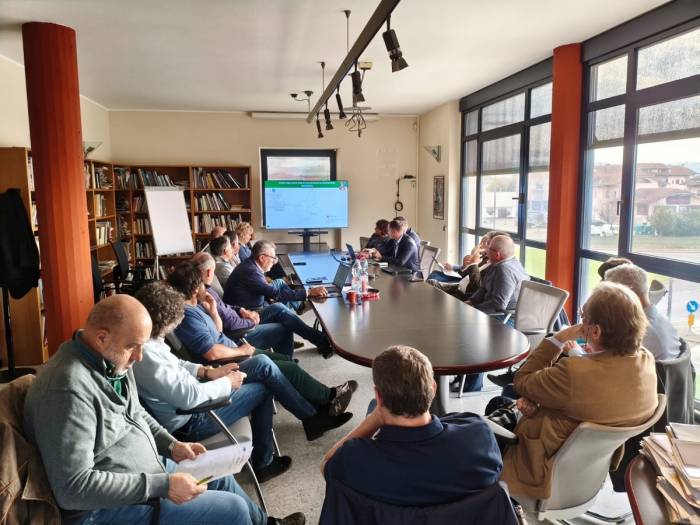Piedmont Launches Technical Committee to Boost Wine Innovation and Sustainability With EU Funding Through 2027
Regional experts and industry leaders unite to streamline research, address climate challenges, and enhance collaboration in Italy’s renowned wine sector.
2025-11-21

A new technical committee focused on wine has been established in the Piedmont region of Italy, aiming to address the challenges and opportunities facing local viticulture. The first meeting took place in Castagnito, a town in the province of Cuneo, where representatives from research institutions, industry associations, and wine consortia gathered to discuss strategies for innovation and sustainability in the sector.
The initiative is coordinated by Fondazione Agrion and Vignaioli Piemontesi, two organizations with deep roots in regional agriculture and wine production. Participants included experts from the University of Turin’s Department of Agricultural, Forest and Food Sciences (Disafa), ConviVi, Agroinnova, Crea-Ve, Cnr-Ipsp, and the Polytechnic University of Turin. Also present were representatives from Piemonte Land of Wine, various wine consortia, and major agricultural associations such as Confcooperative, Confagricoltura, Coldiretti, Cia, Unioncamere, and Confindustria.
This new committee is part of the Innoagri project, an incubator for ideas aimed at fostering innovation in Piedmont’s wine sector. Innoagri is funded by the European Union’s Common Agricultural Policy (CAP) for rural development for 2023-2027 and led by Vignaioli Piemontesi. The project seeks to strengthen collaboration among research bodies, producers, and public institutions to ensure that resources are used efficiently and that research efforts are not duplicated.
During the first meeting, participants reviewed a comprehensive survey of existing research infrastructure and activities related to viticulture in Piedmont. The survey highlighted both strengths and weaknesses in the region’s approach. On one hand, Piedmont boasts a wealth of expertise and potential; on the other hand, there is a clear need for better coordination to avoid overlapping projects and to maximize impact.
The committee agreed on several key priorities: developing solutions for genetic improvement of grape varieties, promoting sustainable vineyard management practices, and increasing efficiency in winemaking processes. There was consensus on the importance of sharing data and best practices among all stakeholders. The group also discussed plans to launch training programs for local winegrowers and to monitor progress across different areas of intervention.
One immediate goal is to present ongoing research initiatives to the region’s wine consortia. This step will help ensure that research activities align with the needs of producers on the ground. Feedback from these consortia will guide future research directions and help shape a formal proposal to be submitted to the regional government.
The ultimate aim is to attract new economic resources to support innovation in Piedmont’s wine industry. By leveraging existing structures and expertise within the region, organizers hope to consolidate coordination between research entities, government agencies, and businesses. This approach is expected to facilitate knowledge transfer from laboratories to vineyards and wineries across Piedmont.
The creation of this technical committee comes at a time when climate change poses significant challenges for wine producers worldwide. By focusing on sustainability and resilience, Piedmont’s wine sector aims not only to protect its rich heritage but also to remain competitive in an evolving global market. The committee’s work will continue over the coming months as it refines its proposals and seeks additional support from regional authorities.
Founded in 2007, Vinetur® is a registered trademark of VGSC S.L. with a long history in the wine industry.
VGSC, S.L. with VAT number B70255591 is a spanish company legally registered in the Commercial Register of the city of Santiago de Compostela, with registration number: Bulletin 181, Reference 356049 in Volume 13, Page 107, Section 6, Sheet 45028, Entry 2.
Email: [email protected]
Headquarters and offices located in Vilagarcia de Arousa, Spain.